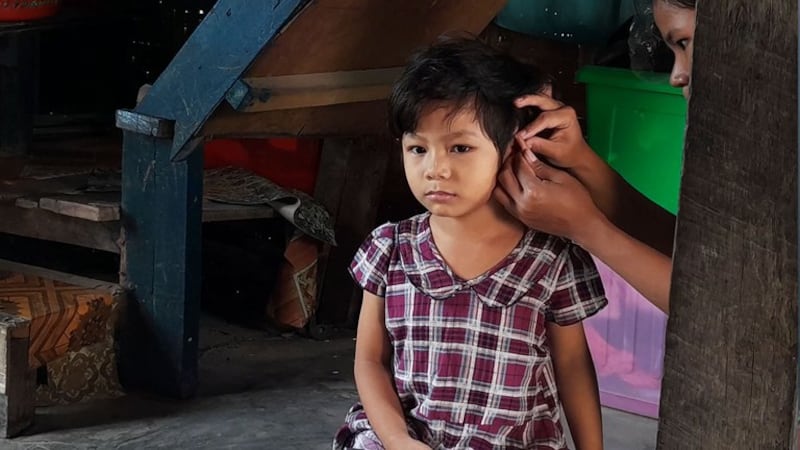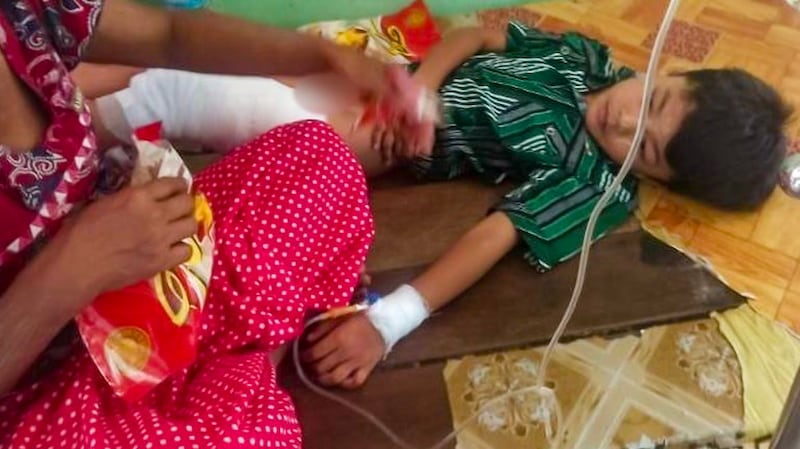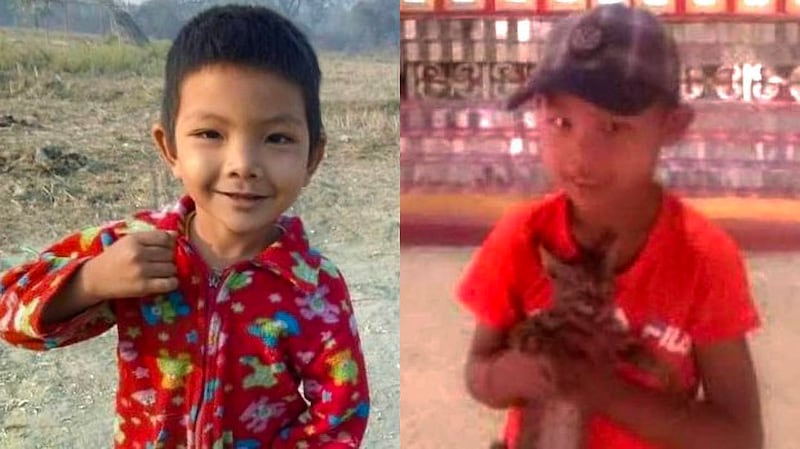The junta and militia soldiers entered the village under cover of darkness and started torching houses. A 13-year-old child was shot and killed during the Dec. 19 raid on Zee Pin Thar village in Sagaing, witnesses said.
The sixth grade student was one of 157 children killed this year by the military as it tried to consolidate its power after it deposed an elected government in a Feb. 1, 2021, coup, according to a report from the Assistance Association for Political Prisoners, a Thailand-based group that monitors human rights abuses committed by Myanmar’s military, released Dec. 23.
The group said that a total of 267 children have been killed in the junta crackdowns since the coup. Save the Children, an international aid organization, estimates that another 520,000 children have been forced to flee their homes in Myanmar due to the conflict.
Su Ya Ti Hlaing
One of the most notorious military raids happened in Let Yet Kone village of Tabayin township in September, when military helicopters attacked a school, killing 13 people, including seven children.
Su Ya Ti Hlaing, 8, was among the dead. Her family said they did not get a chance to see their child’s body.

“Bystanders told me that Su Ya Ti Hlaing and other children were put into bags and taken away in their cars,” her grandmother told RFA. “They didn’t give us their bodies. They shot over a thousand times at the school with children in it. My child got hit seriously. Her intestines fell out from her little womb.”
Jin Ngai Hoek
Tom Andrews, the U.N. special representative for Human Rights in Myanmar, said in June that at least 382 children had been killed or maimed by Myanmar military’s airstrikes or heavy artillery since the coup.
Jin Ngai Hoek, a 6-year-old in Kale in Sagaing region, was severely wounded when a bit of shrapnel from an artillery shell pierced her right temple in a July 3 junta attack on her village.

“Doctors in Mandalay performed a CT scan to check the blister in her head. And then they were not confident to perform an operation to remove it,” said Jin Ngai, his mother. “They said it was dangerous and it can be successfully removed in foreign countries only and they could not guarantee a success because they did not have proper medical equipment with them there.”
Jin Ngai Hoek cannot remember her name or stand for long because of her injury, her mother said.
Brothers wounded, and killed
On the morning of July 12, a 12-year-old boy was playing indoors with his 3-year-old brother when a military convoy attacked their village of Pyar Sa Khan, in Thandaung Gyi Township, Kayin state. Both brothers lost their legs.
“We were playing inside our house. They just shot us all. My leg was shot. They were moving and shooting everywhere,” the 12-year-old said. “I heard bang, bang, bang so many times. Both me and my brothers were shot in our legs. Our legs were in a lot of pain. I have a headache, too.”

The military’s scorched earth counterinsurgency campaign – which includes airstrikes, heavy artillery and the torching of towns and villages – continues to threaten civilians, particularly children and the elderly who can’t escape attacks as easily. Dangers remain even after the military retreats.
UNICEF Myanmar reported that 115 children were killed by munitions left behind after battles between military and insurgent forces.

They include Pyae Sone Aung and Min Htut Zaw. The 7-year-old boys had the misfortune of finding a grenade that had been reportedly left by the military troops in Kan village of Gangaw township, Magway region.
“The children were playing with the 40 mm grenade, throwing and catching it," said Yu Ko, a village resident. "Then one of them hit it with a stone and the two children were killed in the explosion.”
Translated by Myo Min Aung. Edited by Jim Snyder and Malcolm Foster.
